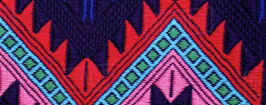




Every woman is a chameleon. She changes her color to suit the situation; she adjusts and adapts to face the pressing challenges. She wears a different face but the essence of who she is remains the same. That’s how we have to be as young feminists, fighting on multiple fronts and living and working in this world.
I spent a day hanging out with a group of young feminist activists from the Young Women’s Leadership Initiative (YOWLI). In some circles, they are known as the Vagina Warriors, a provocative name that sums up what YOWLI’s activism is all about: the centrality of the body, sex and sexuality to women’s struggles for rights and equality.
Here’s what Rudo Chigudu, proud Vagina Warrior, had to say about YOWLI and how young Zimbabwean feminists are carving a space for themselves and making themselves heard.
How did the Young Women’s Leadership Initiative get started? I think the interesting and wonderful thing about YOWLI is it wasn’t started by an individual it was founded by a group of young women. It was born out of conversations with friends about the situation of young women in Zimbabwe. We discussed how issues of sexuality are at the core of the young woman’s struggle for a number of reasons: it [sex] was becoming an instrument to get through college; a source of violation for young women entering jobs so that you started to feel as if you were selling yourself in exchange for work; and in marriage, young women feeling that their sexuality was now owned by their husbands.
In 2008 we had our first strategic planning meeting and realized that our issues needed to be addressed and that it was time to create a space for young women to deal with issues of sex and sexuality. So we met with 15 young women, some who work in women’s and gender issues, friends and associates and we started to have a conversation about what we feel as young women and how can we address these issues. From then we used to have these conversations. We met quite informally in the garden at the national gallery and had these conversations and realized that the issues that each of us thought was unique about our struggle were actually shared.
How did you come up with the name Vagina Warriors? In Zimbabwean traditional culture, people never talk about the body explicitly and this name in itself is so political, how did it come out? And what kind of push-back, resistance, backlash do you get when you use it? Initially the idea was that we needed something different, something radical that was going to break the silence around issues of sex and sexuality. And at the time, we were watching the original Vagina Monologues by Eve Ensler and we thought it was such a powerful tool. I was reading the book and we all watched a DVD version of it together, and we started talking about how powerful it was to start naming parts of our sexuality, naming parts of our body.
As you were saying in Zimbabwean culture it’s not something that’s done, even to say the word vagina in English. But it’s the silence around these issues that causes the situation to remain as it is, so we needed to come out and just say it like it is and remove the shame and stigma attached to these things.
When a woman is raped, and stuck in a courtroom full of men, and she has to start naming the parts of her body – parts of her body that she’s spent her entire life being told that it’s the most sacred part of them – there’s shame attached to that. So she’s violated a second time by just saying these things aloud. How can we negotiate condom use if you can’t say the word vagina? How do you conversations with your partner about sexual health and sexual pleasure when you can’t even talk about anatomy?
We know, in Shona, the word ‘vagina’ is used to insult and offend. The moment a man uses that word on a woman you are silenced completely. So the name Vagina Warriors was all about reclaiming our power with the use of naming and language.
We were expecting backlash from other organizations and from the public, it’s inevitable because, you see, the reclaiming is associated with promiscuity, with loose women who go around saying these things in public. But we’ve also had responses from other women who’ve said that it’s so empowering to say the word vagina; that this is the part of my body where my child comes out; this is where I was violated; this is where I receive pleasure.
When you’re talking about sex and sexuality it’s a difficult journey. And so we used the word ‘warrior’ as a way to reclaim and understand that it’s a hard road and that we will face conflict and push-back along the way.
How do you engage with young feminists and feminists in general? Do you find challenges working within the Zim feminist movement? I think for YOWLI this was one of the issues that was big because a lot of organizations, even those that work with women would call meetings and they’d only get older women. Young women hardly attended those meetings.
We’ve found that we’re able to engage with young women who are in institutions like high schools, colleges – we can go and target young women there because they’re all in one place. But once a young woman becomes a working woman it’s harder to connect and work with them. The women we work with in different communities are often part-time workers; sometimes we connect through aid organizations or knitting circles. Or we find them at women’s gatherings.
In terms of mobilization strategies we need to build our capacity in terms of mobilizing young women. It comes to a point that if you meet a group of young women on an afternoon out, you start a conversation and try to invite them to some of our meetings. We know that we have to start building a movement of young women. There are many who are interested and excited about what we’re doing, excited about learning more about sexuality and reproductive health. But the fact that they’re so isolated, we need to focus on building a movement, a critical mass to work towards the same goal.
What do you have planned for 16 Days of Activism, and how do you hope to use that platform in your work? 16 days is always one of those times where there are lots of mixed feelings for everyone. This is a chance for you to come out to say something boldly about gender-based violence and domestic violence. Yet it’s also a time of sadness as you remember people, as we all remember people that we’ve lost to gender-based violence. For YOWLI we remember a close friend who was murdered by her boyfriend earlier this year.
This is an opportunity to confront an issue that concerns all women and our families, our communities, society – the violence we’re experiencing, IT’S REAL. It can culminate in death. It’s a time where there’s a real wake-up call.
YOWLI is looking forward to opening and facilitating spaces for intergenerational dialogues; mentorship for young women with our older sisters. We’re also doing five shows of the vagina monologues with monologues developed by the women we’re working with. A group of sex workers that we work with will be performing in Bulawayo, young women will perform at different colleges and in communities around the country. We will also be launching a comic book in remembrance of our friend, Nonthando, who we lost earlier this year – dedicated to issues of gender-based violence (GBV). On the 10th, we’re doing a final show; it’s the last day of 16 Days of Activism so it’ll be the biggest one with musicians, and drama, dance. The idea is to make as much noise as possible.
Looking ahead, we’re also doing a CD with poetry and music around GBV. During the elections a lot of women who were victims of GBV and rape and this CD and our work around 16 Days is about putting the word out that as young women we’re not going to tolerate that. It’s a platform to launch a bigger and more exciting campaign.
How are you guys dealing with issues around safety during 16 Days? We are a little bit cautious but we’ve come to realize that with the coalition government coming into place, this is the best time for something like this. There’s fertile ground in the middle of so much confusion and chaos right now. People are more concerned about other things. I think it’s not as hostile as it was or the timing is just right.
The Vagina Warriors are preparing for 16 Days of Activism (November 25 – December 10), initiating and facilitating creative spaces and platforms for young women to step up and claim their rights. See their website here.